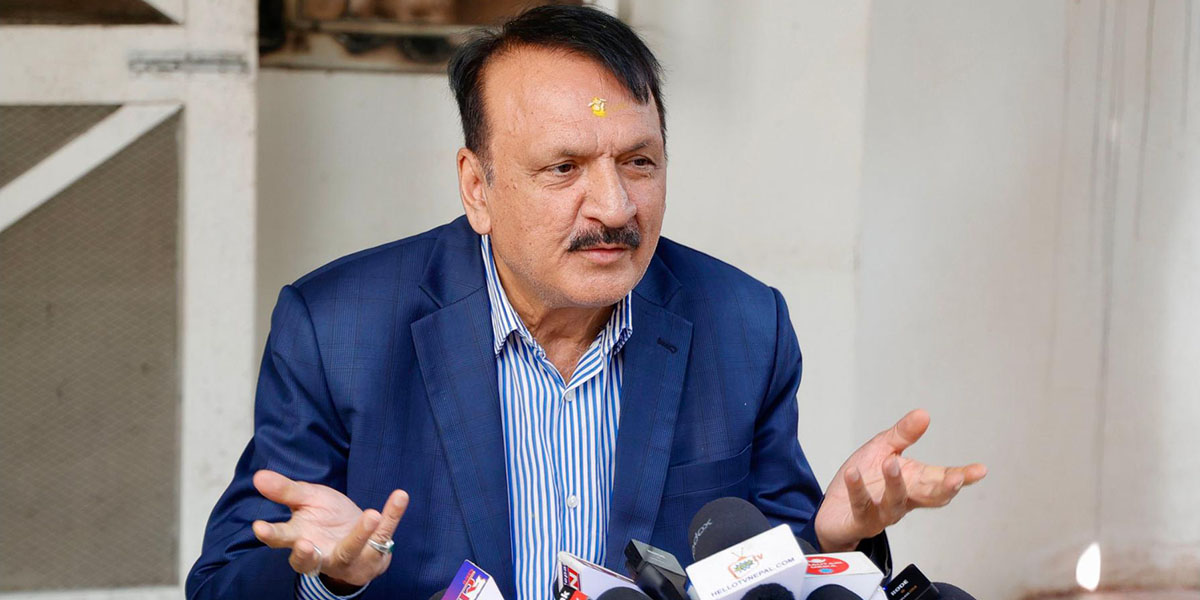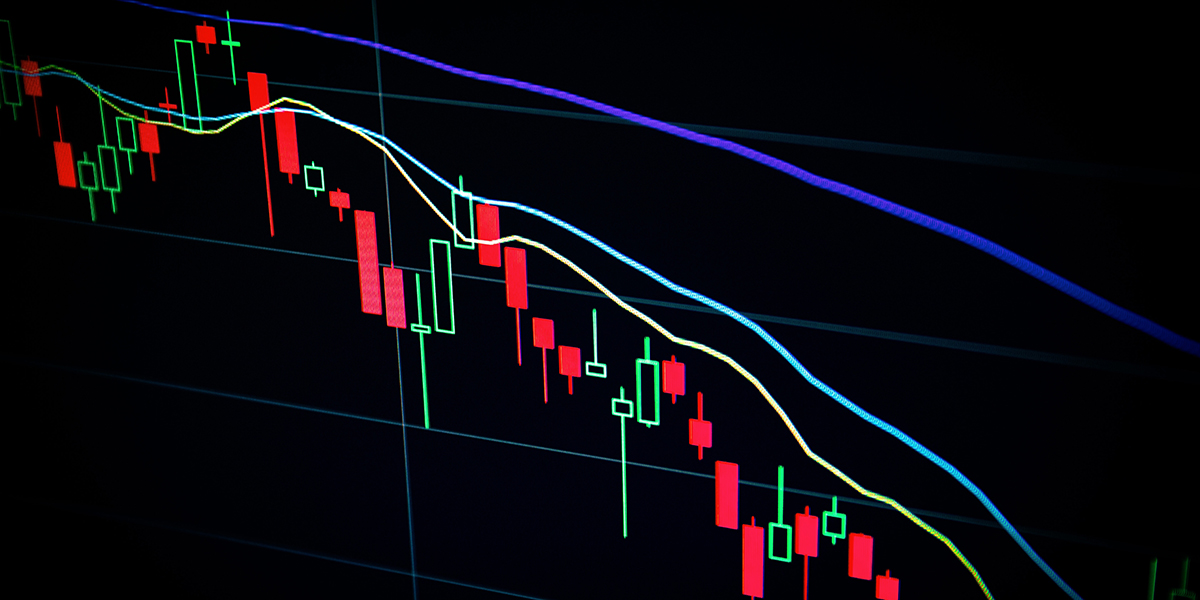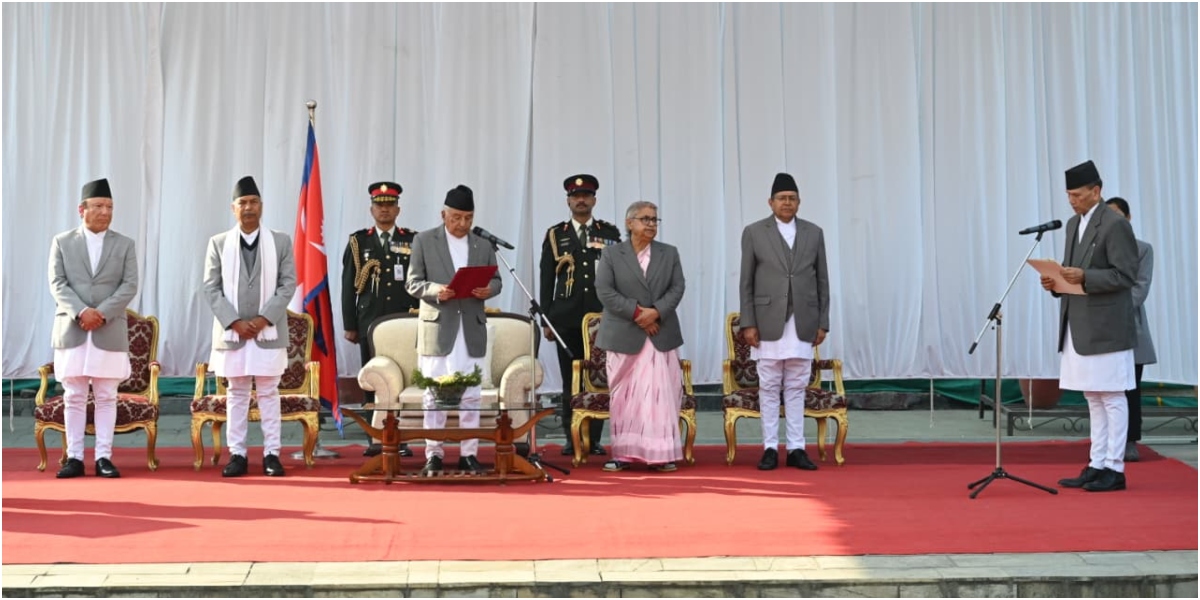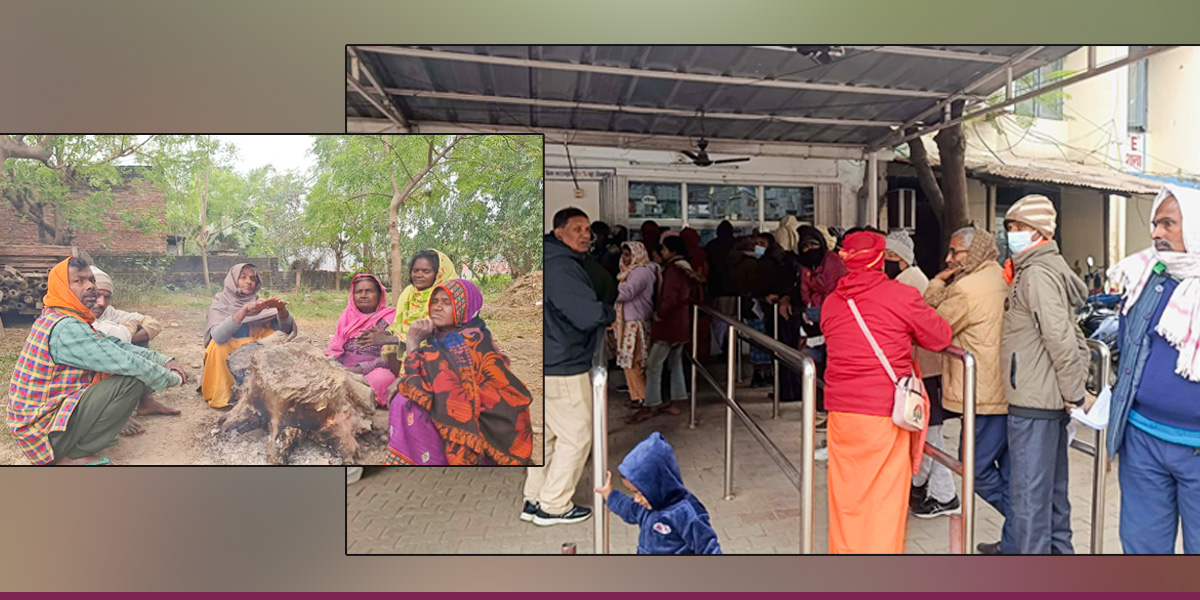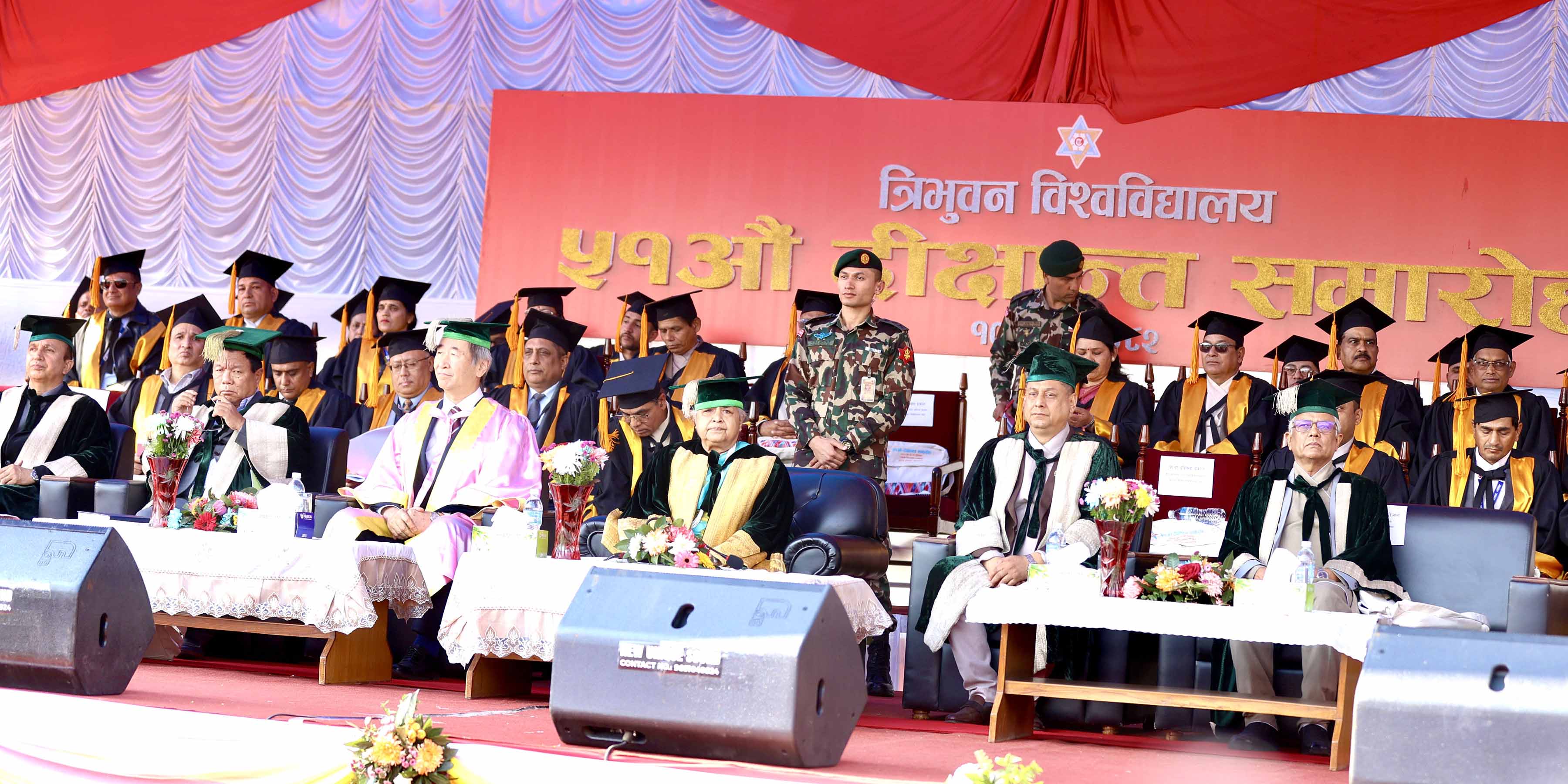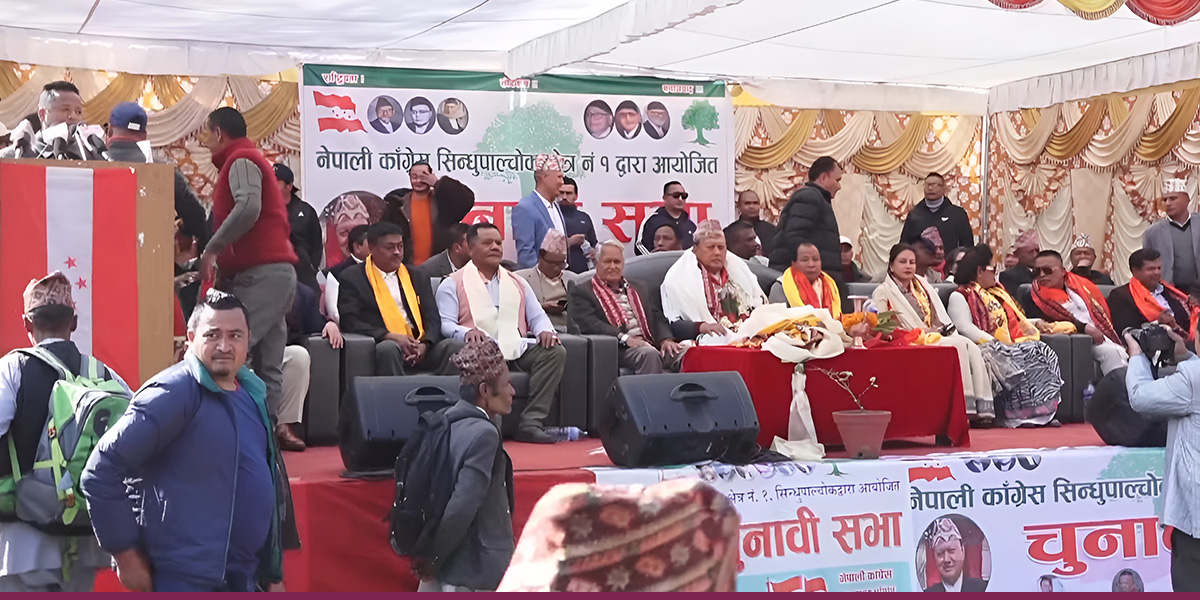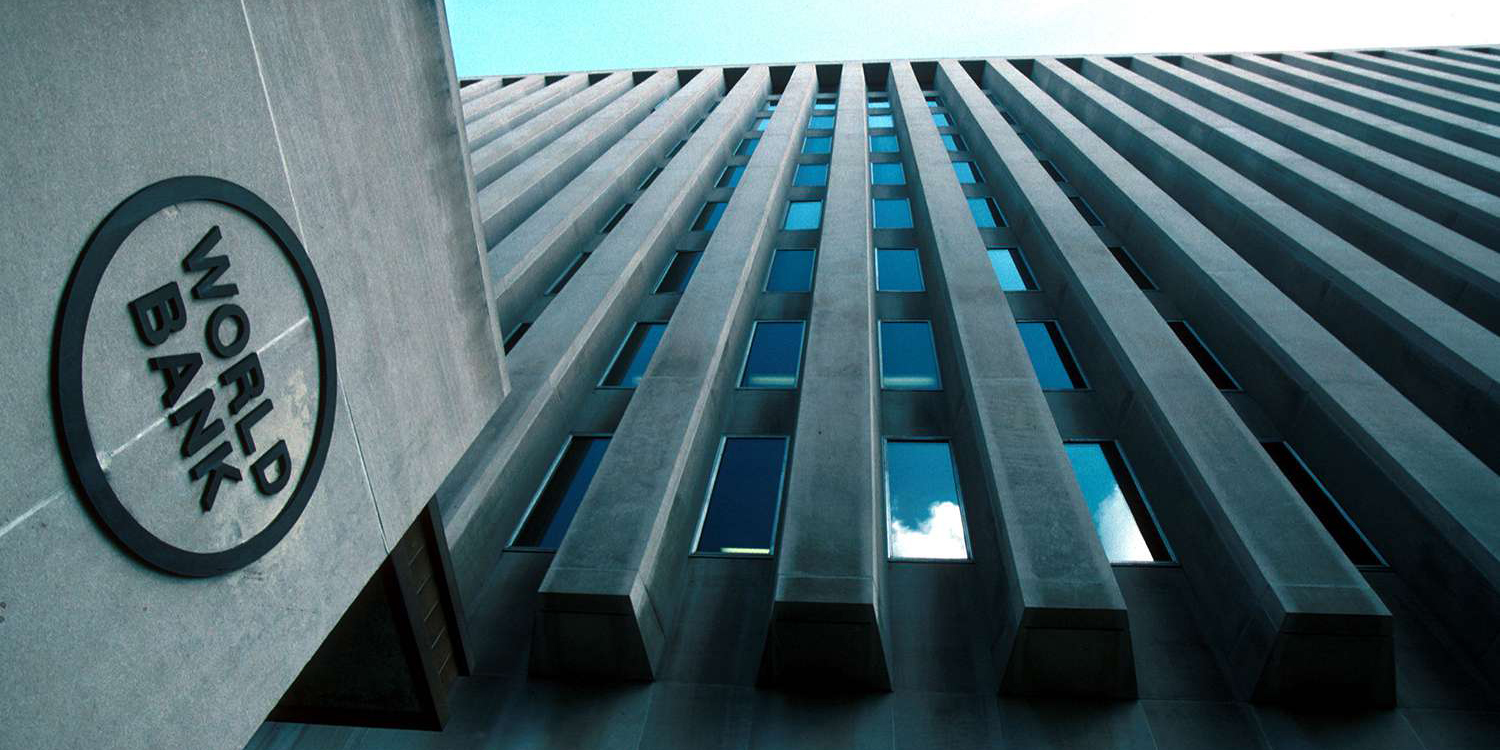
KATHMANDU: Economic growth in the South Asia region slowed slightly to 5.7% in 2023, according to the Global Economic Prospects report of the World Bank.
Despite this slowdown, the region remains the fastest among emerging market and developing economy regions – largely due to a robust expansion in India, which accounted for more than three-fourths of the regional output in 2023.
“In India, despite some slowing, strong performance in 2023 was driven by robust public investment growth and vibrant services activity. Merchandise exports slowed due to weak external demand, but domestic demand for consumer services and exports of business services sustained India’s economic growth,” the World Bank stated in its report.
According to the report, growth is estimated to have slowed in Bangladesh in 2022/23 due to import restrictions and rising material and energy costs, as well as mounting external and financial pressures. “The impact of earlier import restrictions, which were subsequently lifted, along with previous monetary policy tightening, weighed on growth in Nepal,” it added.
Output in Pakistan is estimated to have contracted during 2022/23, while overall production in Sri Lanka is also estimated to have declined in 2023 despite progress in sovereign debt restructuring.
The World Bank expects growth in the South Asia region to edge slightly lower to 5.6% percent in 2024, before rising to 5.9%. “Domestic demand, including public consumption and investment, will remain major drivers of economic growth. A pickup in external demand, albeit still subdued, is also expected to contribute to growth,” it added.
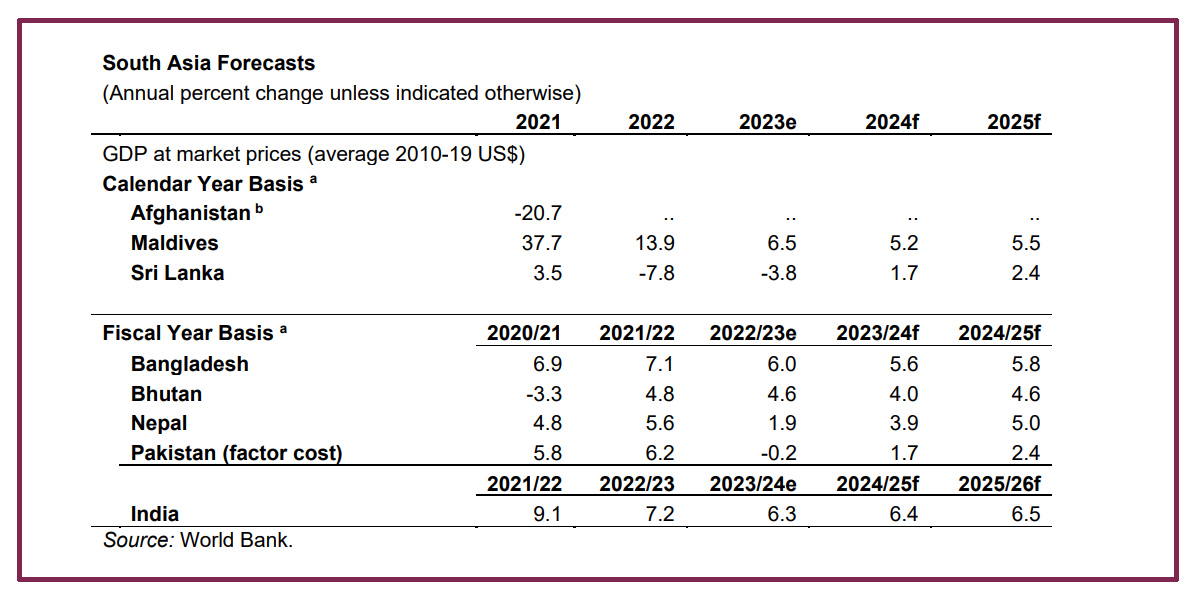
The World Bank expects growth in India to edge up to 6.4% in 2024/25, while it forecasts growth to slow to 5.6% in Bangladesh. “In contrast, growth is projected to pick up in Nepal, with monetary policy easing and the delayed effects of lifting import restrictions,” the World Bank said in its report.
The outlook in Pakistan remains subdued for FY2023/24, while investment related to the tourism sector will support growth in the Maldives, and the commissioning of a new hydro plant in Bhutan is expected to contribute to a pickup in growth in the next fiscal year, the World Bank said.

 Himal Press
Himal Press 

